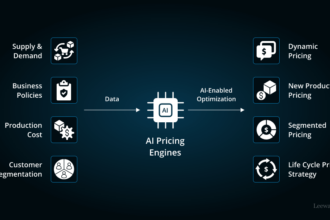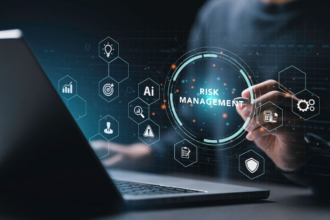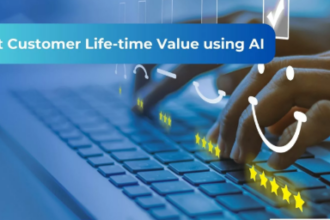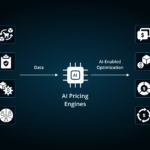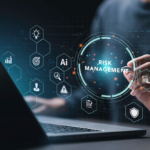I will discuss the AI Tools for Cybersecurity Threat Detection, focusing on how AI and machine learning technologies are applied to mitigate cyber threats proactively.
These tools enable automatic monitoring of networks, endpoints, and cloud systems, providing real-time detection of anomalies and automated responses to cyber threats, enhancing organizational protection and improving operational efficiency.
What is Cybersecurity Threat Detection?
Cybersecurity Threat Detection focuses on the recognition, supervision, and action-taking necessary for imminent threats to information, digital systems, networks, and data.
It makes use of sophisticated resources, technologies, and methodologies like intrusion detection systems, AI analytics, and real-time monitoring to detect malicious activities, software, or access attempts of restricted information.
Competent threat detection enhances organizational resilience against data breaches, cyber intrusions, and disruption of normal operations.
Cybersecurity threat detection helps in preserving strategic information by identifying and counteracting potential breakdowns, and by upholding the integrity and reliability of digital systems.
How To choose the AI Tools for Cybersecurity Threat Detection
Here’s a definitive list of considerations when looking for tools for AI-driven Cybersecurity Threat Detection:
Accuracy & Reliability: Focus on tools that have a clear record of high accuracy and low false positive rates.
Real-Time Monitoring: Capable of identifying and responding to threats as they occur.
AI & Machine Learning Capabilities: Advanced algorithms to conduct behavioral analyses for threats that have not been previously factored.
Integration Support: Compatibility for networks and security systems already in use is a prerequisite.
Scalability: Support anticipated growth in organizational size and data volumes.
User-Friendly Interface: Intuitive dashboards and reports facilitate better and more efficient threat response.
Cost & ROI: Investment protection advantages and value sustained over time must be balanced against the cost.
Vendor Support & Updates: Responsive customer service and timely threat-agnostic security updates is a must.
Key Point & AI Tools for Cybersecurity Threat Detection List
| AI Tool | Key Point / Unique Feature |
|---|---|
| Darktrace | Uses AI-driven anomaly detection to identify unknown threats in real time. |
| CrowdStrike Falcon | Cloud-native platform with endpoint protection and threat intelligence integration. |
| Cylance | AI-powered malware prevention using machine learning for proactive threat detection. |
| Vectra AI | Focuses on detecting hidden attackers in cloud and network environments. |
| SentinelOne | Autonomous endpoint protection with real-time response and remediation. |
| Sophos Intercept X | Deep learning technology to detect malware, exploits, and ransomware. |
| Palo Alto Cortex XDR | Integrates endpoint, network, and cloud data for comprehensive threat detection. |
| Trend Micro Vision One | Cross-layer detection with extended visibility and threat correlation. |
| Cisco SecureX | Unified platform for threat detection, investigation, and automated response. |
| LogRhythm AI Engine | Advanced behavioral analytics for rapid detection and prioritization of threats. |
1.Darktrace
Darktrace is widely known as a self-learning AI tool used for Cybersecurity Threat Detection. Unlike traditional AI systems, Darktrace is capable of real-time detection of unknown threats, insider risks as well as sophisticated cyberattacks yo which traditional security systems are oblivious of.
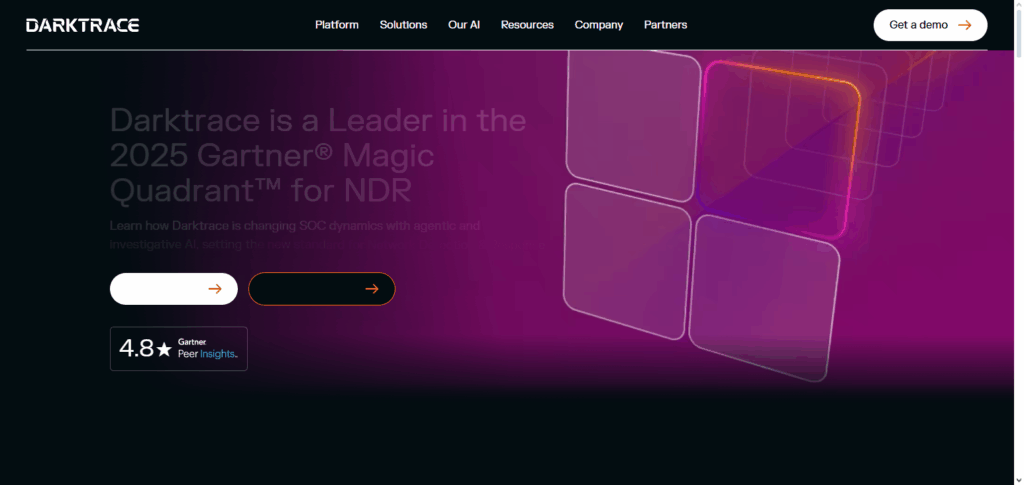
Darktrace’s patented autonomous response mechanism is capable of real-time neutralizing of threats, drastically reducing damage. This synergy of real-time action and predictive intelligence is why Darktrace is not only preferred, but a must have for enterprises seeking stringent data protection and maintaining safe digital waters.
2.CrowdStrike Falcon
CrowdStrike Falcon serves as an advanced Cybersecurity Threat Detection tool powered by AI, offering machine learning-driven, cloud-native endpoint protection coupled with sophisticated threat insight.
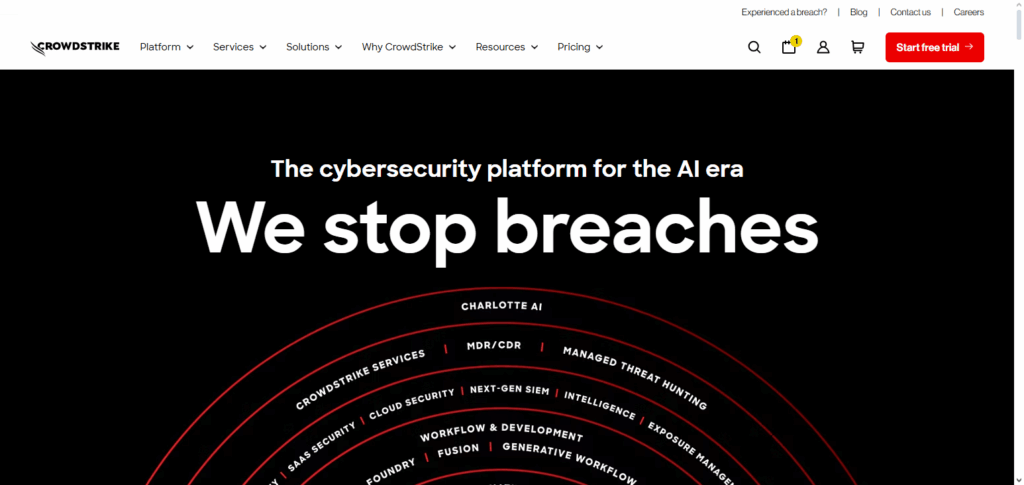
Its AI capabilities not only detect but also prevent and respond to cyber attacks in real time, scrutinizing enormous collections of endpoint data for any anomalous behaviors. Its standout feature of real-time local behavior analysis alongside global threat intelligence correlation allows for the swift identification of sophisticated new attacks.
Through automation and proactive measures, Falcon strengthens the protective and defensive cyber capabilities of companies while ensuring the security of valuable data.
3.Cylance
Cylance uses innovative AI technology specifically for Cybersecurity Threat Detection and focuses on preventive measures using machine learning. Unlike conventional security systems which operate on signature detection, Cylance malware, ransomware and zero-day attacks using predictive algorithms and preemptive measures.

Its light and endpoint-centric architecture ensures no device is slowed, permitting rapid deployment in large scale networks. Anticipating and neutralizing threats with AI, Cylance arms organizations with trustable predictive security, reducing risks and fortifying cyber defense.
4.Vectra AI
Vectra AI specializes in cybersecurity threat detection by detecting unauthorized users in networks and cloud settings. It utilizes sophisticated machine learning and behavioral analytics to identify anomalies, lateral movement, and internal threats far beyond the capabilities of conventional tools.
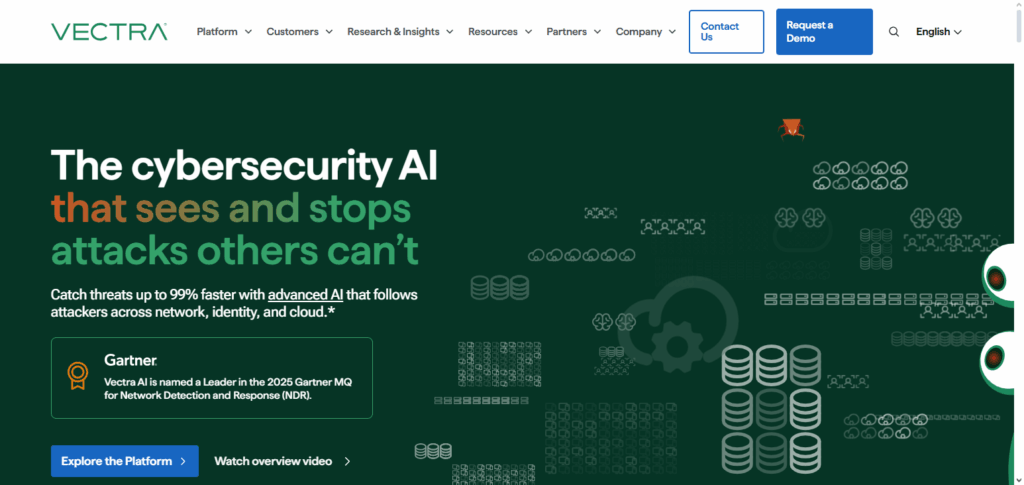
It excels in cross-entity data correlation, providing actionable insights from endpoints, network activities, and cloud applications. Vectra AI significantly improves an organization’s ability to respond to threats by enabling real-time detection, prompt action, and breach avoidance, thereby strengthening the organization’s overall cybersecurity posture.
5.SentinelOne
SentinelOne is an AIl-powered advanced system for Cybersecurity Threat Detection which uses machine learning and behavioral AI to provide autonomous endpoint protection. It is capable of real-time, automatic detection, prevention, and response to malware, ransomware, and fileless attacks without any human action.
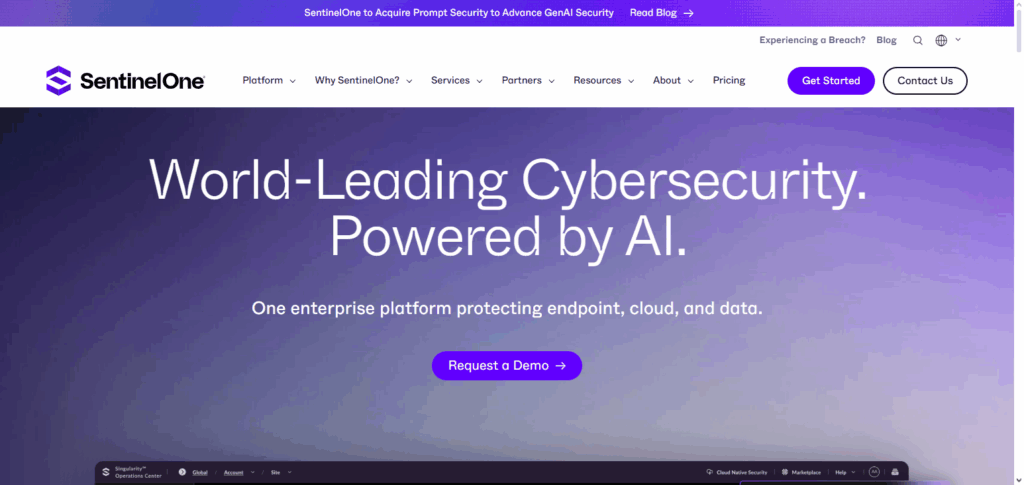
Its unique strength of combining detection and automated remediation to counterbalance threats in real-time is unmatched. As with many AI systems, full visibility and rapid response with predictive threat intel allows organizations to mitigate the impact of advanced cyber attacks and fortify their cyber defenses.
6.Sophos Intercept X
Sophos Intercept X uses deep learning, coupled with modern exploit mitigation, to protect endpoints from malware, ransomware, and other cyber threats. An industry leader in AI-powered Cybersecurity Threat Detection tools, it incorporates advanced features that monitor files and system behaviors to assess threats that are yet to manifest.
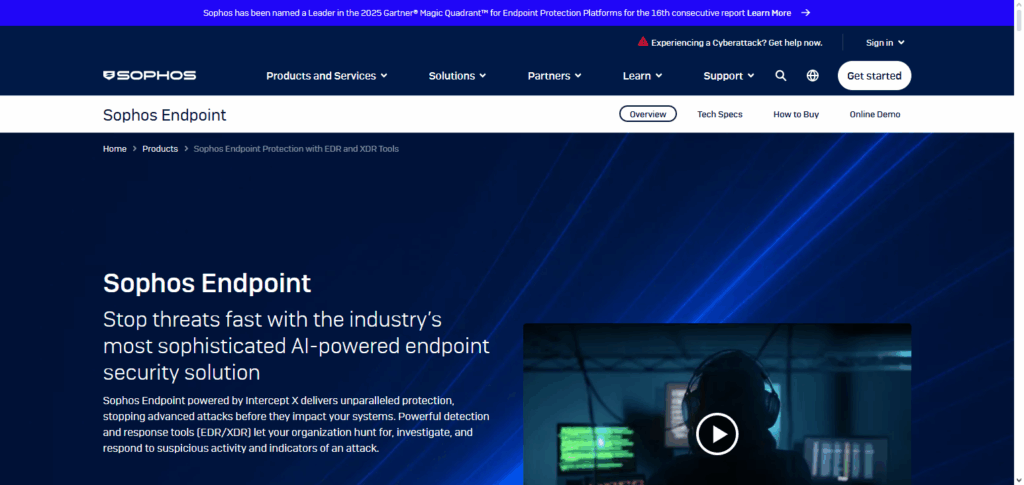
Sophos Intercept X proactively prevents attacks from progressing past detection while automating real-time response processes. With Intercept X Sophos, Sophos ensures that organizations bolster their cyber resilience, cuts risk, and enhances operational continuity without increasing friction.
7.Palo Alto Cortex XDR
The Palo Alto Cortex XDR is one of the most advanced AI-driven Cybersecurity Threat Detection tools as it integrates endpoint, network, and cloud data for complete threat visibility. Moreover, it is able to perform machine learning, advanced analytic, and behavioral model functions to detect sophisticated and complex attacks that many other systems would miss.
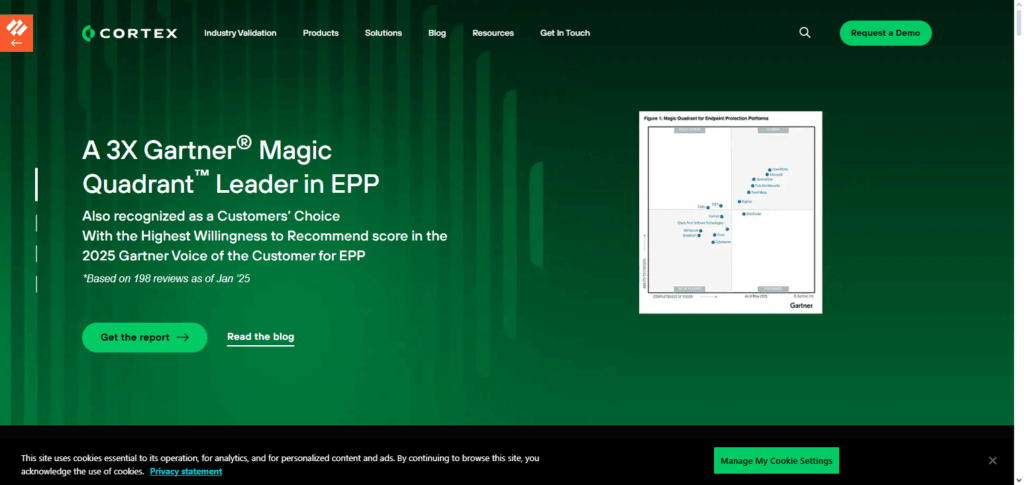
Cortex XDR is able to go a step further as well since it automatically responds to threats it identifies by prioritizing events and correlating data from various sources. Its comprehensive AI-driven capabilities helps the organization strengthen their Cybersecurity posture, prevents breaches, and reduces the response time for threats significantly.
8.Trend Micro Vision One
Trend Micro Vision One serves as an Advanced AI Cyber Security Threat Detection Tool with cross layered threat visibility spanning endpoints, networks, emails, and the cloud. Its capabilities are unique in the industry as they are able to correlate and analyze data from multiple sources through the use of AI and behavioral analytics to uncover concealed threats and sophisticated attack sequences.

Vision One’s provided alerts are categorized by importance and, together with the provided insights, are actionable thereby enabling faster investigation and response. This approach is proactive, intelligence based and aids in strengthening an organization’s Cyber Security Posture while aggresively defending sensitive data from highly sophisticated and adaptive cyber threats.
9.Cisco SecureX
Cisco SecureX is an advanced AI-based cybersecurity threat detection tool which consolidates visibility, analytics, and automated response for an organization’s security infrastructure. Its uniqueness comes from using data from endpoints, networks, and cloud sources to detect threats in real time.
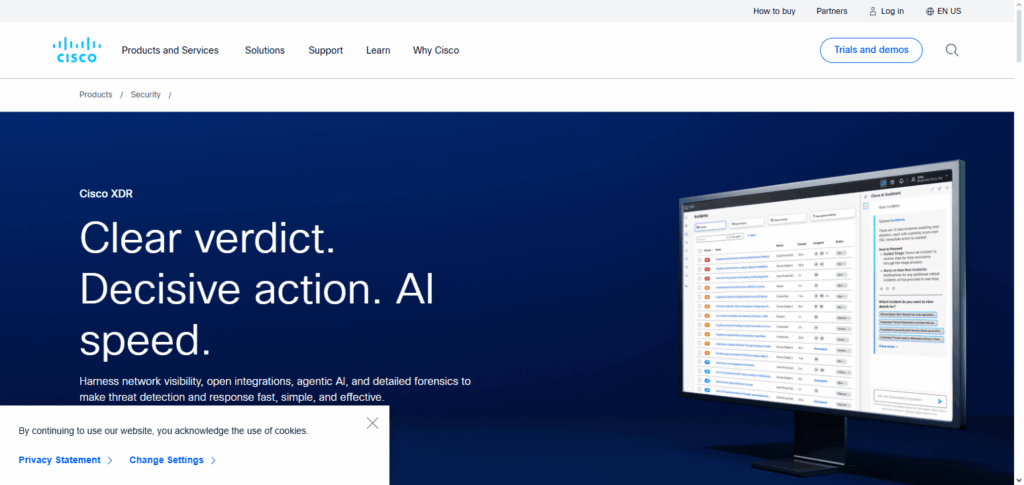
SecureX uses AI insight and automation to improve response times and streamline investigation processes, decreasing the amount of manual work needed. The comprehensive, automated response and intelligence-based SecureX approach enables organizations to detect weaknesses, mitigate cyber threats, and sustain a digitally resilient environment.
10.LogRhythm AI Engine
LogRhythm AI Engine is an advanced AI tool for Cybersecurity Threat Detection that utilizes machine learning alongside sophisticated behavioral analysis to detect and assess threats within networks and endpoints. Its ability to identify and monitor minute deviations and intricacies that signify possible attacks is unprecedented.
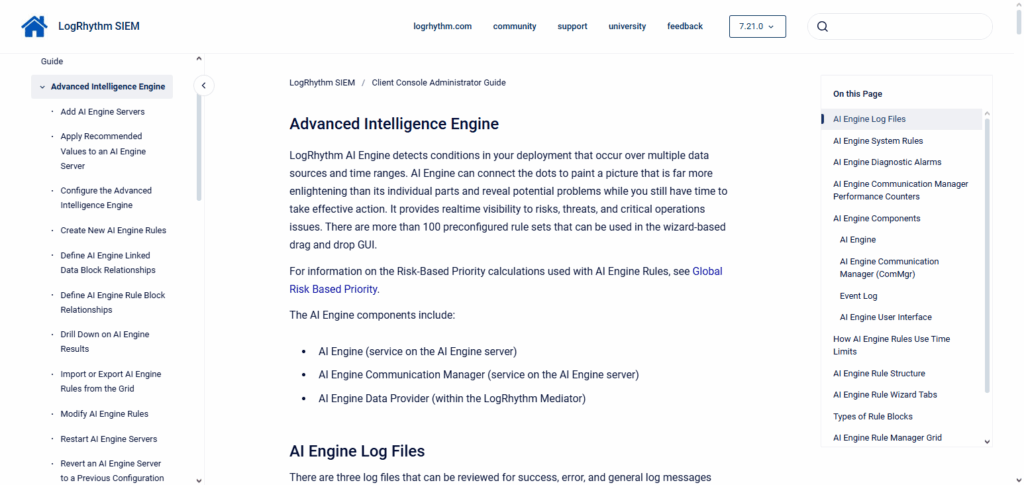
This can include insider and advanced persistent attacks. LogRhythm AI Engine provides actionable insights with automated alerting which ensure quicker response times and investigations. This intelligence-driven method enhances an organization’s ability to fortify cybersecurity capabilities and protect vital information from ever-changing cyberattacks.
Pros & Cons
Pros:
- Real-Time Threat Detection: Cyber threats are detected in real-time, preventing damage—when possible—mitigation.
- Predictive Analysis: Future machine learning models will be able to predict and attempt to mitigate unknown threats.
- Reduced Manual Effort: The systems require far lesser human oversight as they automatically take care of monitoring, analyzing, and responding.
- Comprehensive Visibility: Endpoints, networks, and cloud environments are all monitored.
- Rapid Response: Threats are neutralized quickly, minimizing damage and decreasing downtime.
- Scalable: AI systems are able to manage large amounts of data and expanding networks.
- Continous Learning: AI systems are able to improve their learning over time.
Cons:
- High Cost: The tools make require advanced AI which is more expensive than traditional systems.
- Complex Implementation: Existing systems may be more difficult to integrate with.
- False Positives: Unwanted alerts may be generated by the AI tools.
- Requires Skilled Personnel: Interpreting AI systems and managing the devices require special knowledge.
- Dependence on Data Quality: Clean and AI accuracy is only as good as the data.
Conclusion
The utilization of AI Tools for Cybersecurity Threat Detection has become imperative for organizations dealing with complex cyber threats.
Utilizing machine learning, behavioral analytics, and real-time monitoring, it is possible to identify, predict, and neutralize attacks. Although investment and expertise may be barriers to implementation, enhanced threat visibility, prompt response, and proactive defense justify such challenges.
Ultimately, AI-driven cybersecurity solutions enable organizations to protect critical data from advanced persistent threats, defend their systems against harmful downtime, and fortify their resilience against present and future cyberattack vectors.
FAQ
What are AI Tools for Cybersecurity Threat Detection?
They are software solutions that use artificial intelligence and machine learning to identify, monitor, and respond to cyber threats in real time, protecting networks, endpoints, and data.
How do AI cybersecurity tools work?
These tools analyze behavior patterns, detect anomalies, correlate data from multiple sources, and automatically respond to or alert on potential threats.
Why should organizations use AI for threat detection?
AI enables faster, more accurate detection of known and unknown threats, reduces manual monitoring, and improves overall cybersecurity resilience.

